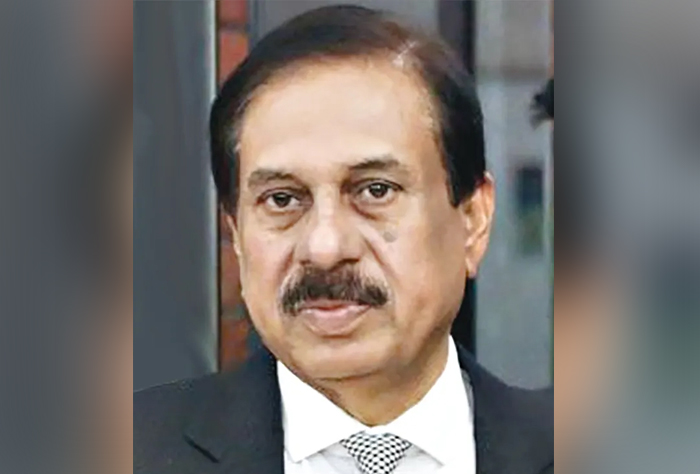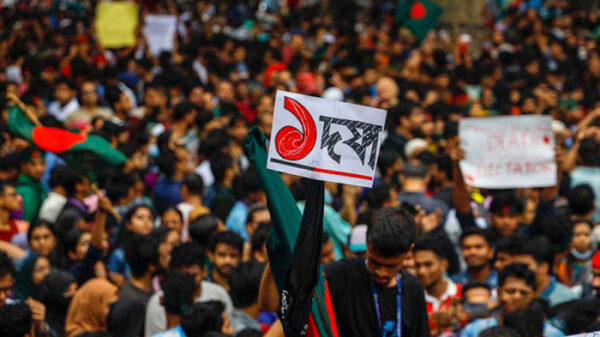

Counter-revolution after revolution is not a new phenomenon. This has happened again and again in the country. Somewhere successful, somewhere or failed. Bangladesh’s revolution has many similarities with other revolutions in the world. From Latin America to the Arab world and Eastern Europe, this is what can be seen. After the revolution, there was political unrest. After the revolution there was great optimism among the people. This is also seen among the people of Bangladesh. But history shows that these expectations are never realized. Change takes time.
But soon people get spoiled. Such is the example of the Arab world. The rulers of Tunisia and Egypt fell, but there was great political unrest. The Tunisian revolution established a weak democracy. Which still faces many challenges. Military rule returned to Egypt shortly after. The hopes of the revolution were shattered. The success of the revolution is a difficult path. A similar crisis is going to happen in Bangladesh. If there is no stable governance, people will start calculating in various ways. Revolutions usually bring together different classes and groups. People who unite for change. Plays a central role in challenging powerful rulers. Rumors are one of the tools used to defeat revolution. Spreading fake videos creates confusion among people. As is going on continuously in Bangladesh. The rumor that one crore Hindus are leaving the country has no basis. There is a far-reaching goal behind this card game. The Indian media is spreading falsehoods and inciting division.
Tunisia is the only country in North Africa whose transition has been so dramatic. The rebellion was born on December 17, 2010. The police harassed a street fruit vendor by asking him for a bribe. Fed up with government corruption and torture, he set himself on fire. The incident ignited protests across the Middle East. Because people demanded jobs, better living conditions and greater freedom. Tunisian police killed hundreds of people after this incident. Despite President Zine al-Abidine Ben Ali’s promises of reform, distrust continues to grow. On January 14, 2011, Ben Ali fled to Saudi Arabia with his family members. Bangladesh has a lot in common with Tunisia. Starting from the quota movement. Ended with Hasina’s resignation. On August 5, Sheikh Hasina fled to India with her family members. Here too the police killed hundreds of people. Domestic and foreign forces tried to keep him in power but failed miserably. Shooting from helicopters on the people of one’s own country caused a huge reaction in people’s minds. Which is unprecedented in this region. After the successful revolution two weeks passed through many intrigues and challenges.
Attempts at judicial cues were one of them. Certain events make the activities of the revolution controversial. Hopefully, responsibility is being accepted after the fact. Which was not the case before. Professor Dr. Muhammad Yunus is the only symbol of hope. Around him, the country is moving towards post-revolution reforms. However, its control in all areas has not yet been established. Fragile and fragile situations everywhere. I think the heroes of the revolution understand that Yunus’ regime cannot continue with Sheikh Hasina’s administration.
In this situation, if the political forces do not do the right politics, it may be difficult to maintain the success of the revolution. As has happened in other parts of the world. Lessons should be learned from the Latin American revolutions. Because the revolution there was hoping to get rid of the situation immersed in economic crisis. Venezuela’s experience shows how important it is to properly manage the economy after a revolution. It is natural to increase social tension after revolution. Which may create more volatility. A major threat to the revolution is the resurgence of reactionary forces. Which happens to bring back the old system. In many cases it ends in a military coup. Sajib Wazed Joy, son of Bangladesh’s ousted Prime Minister Sheikh Hasina, described the revolution as illegitimate and chaotic. False propaganda creates division. Doubts arise in people’s minds. Played a helpful role in weakening the revolution. It should be remembered that these strategies will destabilize the new government. One of the purposes of doing so is to create the possibility of foreign intervention.
The Russian Revolution of 1917 brought an end to Tsarist rule in Russia. Chaos is created. Takes a major turn in the history of imperialist Russia. Food shortages, military failures, and autocracy led to mass protests. This protest turned into a new revolution. Tsar Nicholas abdicated. A void is created. The new government failed to control the situation. As a result, chaos and anarchy arose across the country. Similarly, Prime Minister Sheikh Hasina’s resignation created uncertainty in Bangladesh. The police refrained from acting. As it happened in Russia. The law and order situation deteriorated. Lack of law enforcement creates insecurity and fear in Bangladesh. Which has a negative impact on people’s daily life. People organize to maintain the success of the revolution. They take various measures to protect themselves. Generally, social tensions rise after a revolution. This leads to hatred and conflict between different communities. During the Russian Revolution there were violent attacks against minorities. As a result, the level of fear increases. Rumors of attacks on minorities spread in Bangladesh. Some things do happen. However, most of the cases have been proven false. The main aim was to create excitement by political supporters.
Mass resignations of officials weaken the government. Reduces public trust in institutions. The resignation of the Chief Justice and Central Bank Governor in Bangladesh is as important as the resignation of the Russian government. Further weakens the country’s administrative structure. The collapse of Russia’s police and judiciary led to a lack of control in Petrograd. Which poses a great threat to public safety. As the government failed in Russia, the Bolsheviks came to power. They establish strict controls even as they promise change. So that people’s rights are limited. In Bangladesh too, extremists can take advantage of chaos to gain power. As the revolutionary extremists did in Russia. Successes and failures of revolutions in different regions of the world have taught us that revolutions can be derailed if we do not establish clear communication with the people and build strong relationships with international partners. Keeping the people informed and united is the main task. The ultimate test of revolution is the introduction of a new regime. Like the revolutionary governments of Latin America, the government of Bangladesh will also protect the revolutionary ideals. Failure to balance the practical needs of governance will lead to chaos. Whether the new political and social system is helping to meet the needs of all people also needs constant review. Much of the sustaining success of the revolution depends on the coordinators of the anti-discrimination student movement. They are the driving force of this revolution. They have to be more careful while speaking. We all know that too much publicity breeds new crises. Brigadier General (retd) M Sakhawat Hussain’s burning testimony.
Various measures have been taken to deal with the post-revolutionary situation in the country. Including maintaining national unity, emphasizing economic stability, strengthening institutions. To establish social justice. Beware of Dictatorship. Closer relations with the international community. Tunisia’s fledgling democracy faces repeated challenges. The role of Islam in politics has created friction between both secular and Islamist factions. In 2013, tensions escalated. At this time, two prominent secular politicians, Chokri Belaid and Mohammad Brammi, were killed. The country then plunged into a political crisis. And that’s when the civil war started.- Translated.